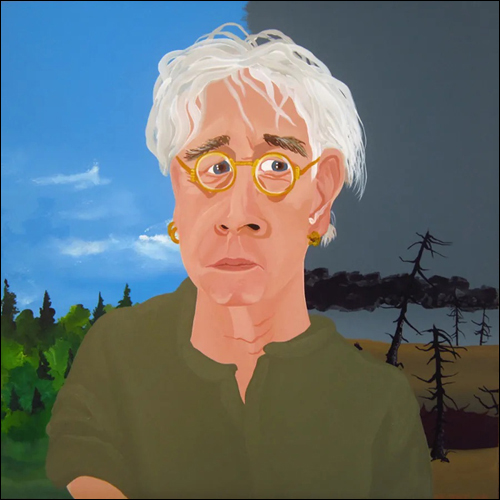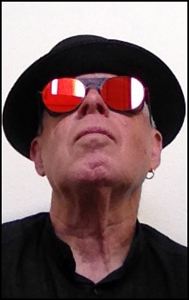By M.D. Dunn
February 14th, 2018
At age seventy-two, after fifty years of recording, Canadian songwriter/guitar wizard Bruce Cockburn has produced some of the best music of his career on September’s Bone on Bone. Over thirty-three albums, Cockburn has offered fearless commentary on political issues, meditations on spirituality, and hundreds of brilliant songs that defy categorization.
He is perhaps best known for two mid-career hits, 1979’s “Wondering Where the Lions Are” and 1984’s “If I Had a Rocket Launcher.” These songs, as different as they are from each other, are representative of Cockburn’s sprawling catalog. “Lions,” with its reggae-influenced rhythms is a showcase for his unique finger-picking style, and “Rocket Launcher” demonstrates a concern for social justice that runs throughout his songs. (Indeed, he brought politics into his art when musicians were encouraged to avoid “causes.” His involvement in the anti-landmine campaign helped bring about the Ottawa Treaty, in which 122 nations agreed to abstain from using the weapons.)
Admired by musicians and activists around the world, he is royalty in his country of birth. Yet, for all the critical acclaim, Cockburn is a humble working musician with a generous sense of humor. Of his legendary status, Bruce Cockburn has said: “You can be a legend, or you can be present. You don’t get to be both.”
In a recent interview, conducted over telephone, Cockburn discusses his music, songwriting, and the benefits of not selling out.
The Rumpus: How are things in California? From the outside, it looks terrifying.
Bruce Cockburn: San Francisco is such an anomaly in every sense: culturally, weather-wise, and in terms of its sociopolitical structure. As a city, it’s kind of all by itself, with the illusion of self-sufficiency. You’re insulated from a lot of the weirdness. One day, we won’t be. There will be that big earthquake, and it’ll be our turn.
Rumpus: Bone On Bone is a beautiful album. It gets more interesting with each listen. After about two plays, I could remember most of the lyrics, which says something about the strength of the writing.
Cockburn: I find it surprising you could remember because I have my difficulty with them. It took me a while to get it. I still struggle with the spoken word parts on “Three Al Purdys.” Of course, they are not my words, they are his. But it’s always touch and go if the lyrics are not just simple rhyming couplets.
Rumpus: That is such a cool song. Having Al Purdy’s poems “Transient” and “In the Beginning Was the Word” with verses from your narrator [a homeless performer of Purdy’s poems offering “three Al Purdys for a twenty-dollar bill”] is remarkable storytelling. Your verses in the middle fit perfectly with the verses from Purdy’s poems. My only complaint is that there are only two Al Purdys in a song called “Three Al Purdy’s.”
Cockburn: Well, I didn’t get the twenty dollars. Nobody was forthcoming with the twenty-dollar bill.
Continue Reading…








